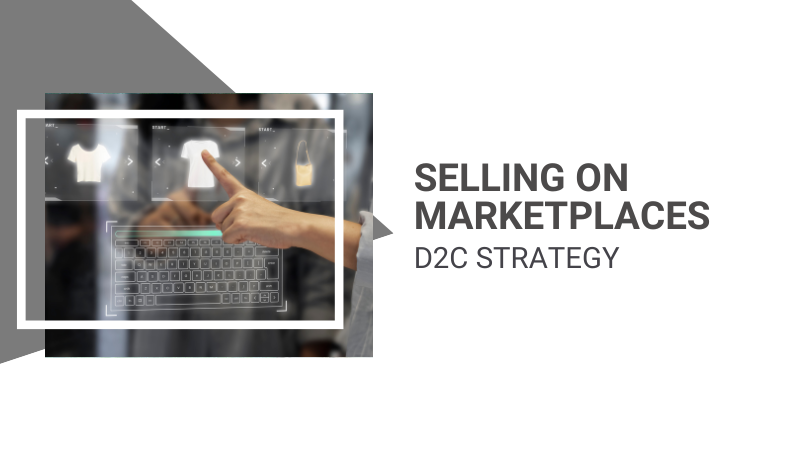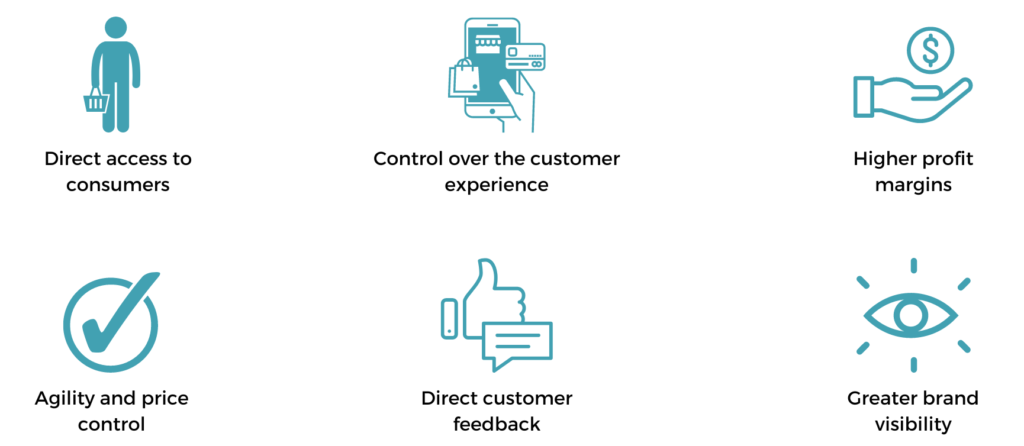Selling Direct-to-Consumer, or the so-called D2C strategy, is revolutionizing e-commerce.
Instead of relying on traditional distribution channels, an increasing number of companies are choosing to embrace the opportunity to sell directly to consumers through marketplace platforms.
This approach offers numerous advantages, allowing companies to have full control and create a direct connection with customers.
How does the D2C strategy work for selling on marketplaces? How can it contribute to business success?
Selling on marketplaces: D2C vs wholesale model
Selling on marketplaces with the wholesale model involves selling products to retailers or other intermediaries, who in turn sell them to end consumers.
The company sells in larger quantities at wholesale prices.
Through the Direct-to-Consumer model, on the other hand, the company sells directly to end consumers through marketplaces, without intermediaries. The company can sell in smaller quantities and apply retail prices.
Marketplaces are increasingly less inclined to use the wholesale model.
Their strategy is to push companies to sell directly to the end consumer (Direct-to-Consumer).
Direct-to-Consumer: the new frontier of online sales
The Covid-19 pandemic has unleashed a true explosion of online sales, with a clear predominance in marketplaces (Amazon, Zalando, eBay, etc.), which now attract 90% of online shoppers.
Although Direct-to-Consumer is not a new concept, the year 2020, marked by the pandemic, revealed the true potential of selling directly to the consumer.
With the closure of physical stores and the exponential increase in traffic on e-commerce websites, many consumers have started to prefer purchasing directly from the brands they love.
This trend has sparked a surge in the D2C model, demonstrating its growing importance in today’s commercial landscape.
D2C Model: What are the advantages?
The Direct-to-Consumer strategy offers several advantages, including:
- Direct access to consumers: By selling directly to consumers on marketplaces, businesses can reach a wide customer base.
- Control over the customer experience: The D2C model allows for managing the entire customer experience, from product presentation to post-sales support.
- Higher profit margins: By bypassing intermediaries, it is possible to achieve higher profit margins.
- Agility and price control: Selling to consumers means that companies have complete control over the prices of their products.
- Direct customer feedback: By interacting directly with customers on marketplaces, companies can receive immediate and direct feedback.
- Greater brand visibility: Marketplaces like Amazon, Zalando, or eBay have a massive user base and offer significant brand visibility.
What do you need to sell on marketplaces with the Direct-to-Consumer model?
The wholesale model entails brands dealing with a limited number of distributors, handling a few high-volume orders.
Today, however, they must adapt to fulfilling even the smallest of packages and understand the specific mechanisms of each marketplace.
In fact, they are required to manage a range of activities, such as:
- Deciding how to allocate products
- Managing shipments and returns
- Creating multilingual digital catalogs
- Optimizing margins
- Handling tax and accounting aspects
- Providing customer support worldwide, 24/7.
Boost your online sales: Discover the D2C strategy with Yocabè!
Through YOCABÈ‘s integrated technological and logistical infrastructure, any company can easily embark on marketplace selling with minimal investment and through a single integration.
This allows businesses to avoid the need to invest in expertise, resources, and technologies.
The YOCABÈ technological infrastructure consists of:
- Smart Catalogue: We design multilingual digital catalogs that comply with the standards of each platform.
- Smart Pricing: Algorithms identify the optimal selling price at any given moment, taking into account input from brand partners, shipping and return costs, and competition.
- Smart Logistics: We optimize product distribution across multiple warehouses, including stores and marketplace logistics, minimizing shipping costs and times.
- Smart Synching: We ensure quantity synchronization and content updates across various platforms.
- Customer Service: We efficiently manage customer inquiries originating from different marketplaces.
Get in touch with our team of experts and request a personalized consultation!



